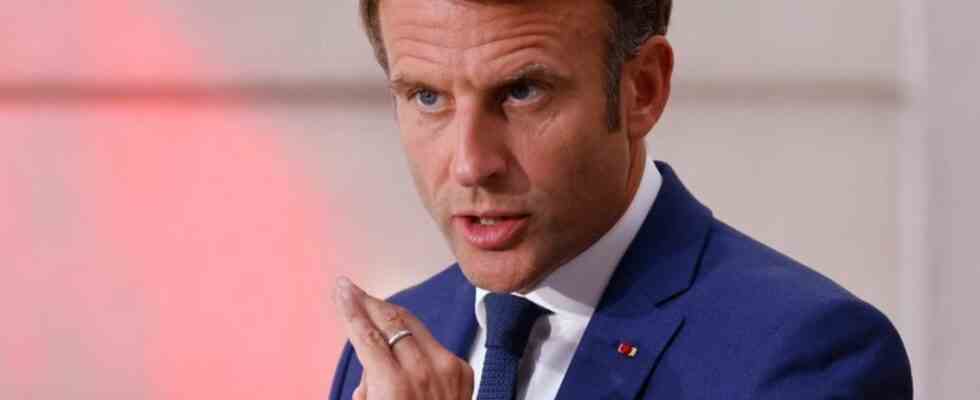France
Macron’s party is renamed and restructured
Emmanuel Macron, President of France, in a speech in Paris. photo
© Ludovic Marin/AFP POOL/AP/dpa
The party of France’s head of state is given a promising-sounding name: “Renaissance”. It’s about much more than just a word: Macron wants to create long-term power structures.
While people in France are struggling with purchasing power concerns and inflation, President Emmanuel Macron is forging a new, promising-sounding project. The President’s center party is to be renamed Renaissance today – “Rebirth”.
Until now, it was called La République en Marche (LREM), which radiates dynamism, meaning “The Republic in Motion”. At the same time, two small partners become part of the new party. The head of the Élysée Palace is less concerned with securing the power of his movement than with the name, which promises a golden age, even after the end of his two-term presidential term in 2027.
2027 will be an important year
“One of the big challenges for Emmanuel Macron in his second term is to prepare for the time afterwards. He doesn’t want a scenario à la Obama,” a government official told Les Echos newspaper. After his double term in office (2008-2016), US President Barack Obama had to give up his presidency to Donald Trump. “The context has changed. Since Emmanuel Macron will not run again in 2027, we need a party that is again catching voters,” said a party representative. Heavyweights like Economy Minister Bruno Le Maire and Interior Minister Gérald Darmanin should join the party and pull together.
“Macronist ideology is destined to endure beyond Macron,” a party strategist told Figaro. “It’s not a name change, it’s a political project,” said MEP Stéphane Séjourné, who was responsible for the name change. It’s about new methods, faces and ideas. In order to consolidate the power base, more ministers are to be included in the leadership of the Renaissance party. Several leading politicians of the majority have expressed their wish, wrote “Les Echos”.
Macron once a hit
Like a high-flyer, Macron won the presidential election in 2017 and, with his newly founded party, won the following parliamentary election at a run with an overwhelming majority. He integrated heads of the traditional Socialist and Republican parties, with the result that both parties have lost much of their importance and support. At the same time, the expansion of the Macron party to the left and right meant that, as a challenger, a left-wing alliance and a strengthened extreme right now make life difficult for it. In the parliamentary elections in June, the presidential camp lost its absolute majority, which is rare in France.
In addition to securing power in the distant future, Macron has recently also been concerned with being able to push through his projects in a situation that is also difficult with the Ukraine war and economic problems. There was talk of cooperation and a new style in Parliament. However, neither the opposition, which often goes on a blockade course, nor Macron seem to be striving for a political compromise in parliament in any case, as is usual in other countries.
Discussions with the individual parties in the Ministry of Finance, for example, should get the budget dry before the parliamentary debate. And Macron prefers to chart France’s fundamental course on important future issues himself – he recently initiated a controversial reform dialogue to which he invited parties and social groups. Apart from his Renaissance plans, Macron will soon be forced to confront his opponents if he gets serious about the planned pension reform, which will allow the French to retire later than before. Protests are inevitable.

